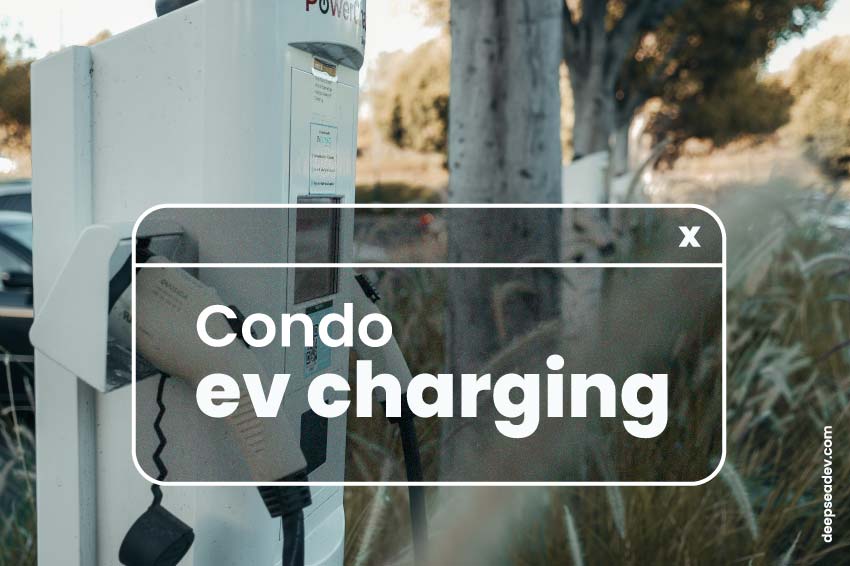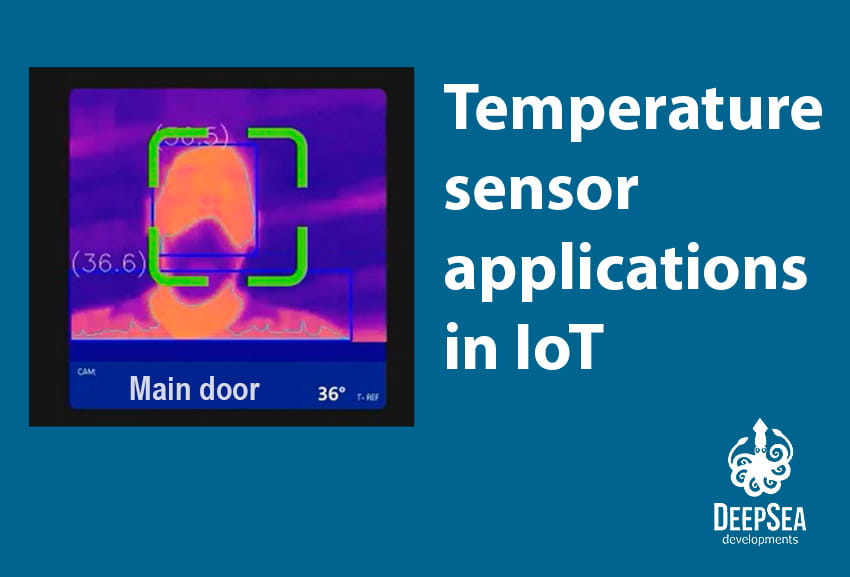Are you considering the installation of an EV charger at your condo? If you own an electric vehicle and reside in a condominium, having an on-site EV charger can offer unparalleled convenience. Say goodbye to searching for available charging points around the area – charging your car at home becomes a hassle-free experience.
Among the benefits of condo EV charging is that you can increase the value of your property. Also, embracing eco-friendly initiatives like EV charging facilities can attract environmentally-aware residents, allowing you to command higher rental rates (if you want to rent your apartment).
However, many questions arise regarding the challenges that can arise because of EV charging stations for condos, and how to convince other residents or the administrative area to approve this investment.
Challenges of EV charging stations for condos
Contrary to a home EV charger installation, condo EV charging installation represents a higher challenge, since there are three main aspects that need to be considered. First, we need to get the necessary permits. There may be different applicable laws and regulations which condition the installation of EV chargers inside condos.
Thus, it is necessary to get advice from local authorities regarding the different limitations and restrictions for carrying out such task.
The second challenge has to do with the technical conditions. Electric panel limitations can sometimes pose challenges when installing EV chargers in condos, since it may require changes in the electric grid.
Each condo unit is usually restricted to a specific amp capacity, which may not be sufficient for accommodating an EV charger. So, to proceed with the installation, upgrading the electric panel or utilizing the building’s panel designated for common areas like halls or garages might be necessary.
By undertaking these measures, condo owners can ensure a successful and efficient EV charger installation process.
The third challenge has to do with the necessary budget for the installation of multi family EV charging stations. There needs to be an agreement between the administration and homeowners to install the chargers and make the necessary arrangements in the condo. Things like electric grid upgrading, building renovations, panel installations, and maintenance expenses need to be calculated.
It may also be difficult to convince everyone about investing in this project, so there needs to be a strong reason to get them all onboard, and highlight the benefits of condo EV charging.
Advantages of condo EV charging installation
Installing EV charging stations in your condo offers a range of compelling benefits that can set your building apart from the competition.
By catering to electric vehicle owners, you not only attract prospective residents seeking eco-friendly amenities but also engage existing EV owners, amplifying the appeal of your property.
EV charging installation may seem expensive at first, however, it will be highly rewarding in the long term, as it increases the property’s value. There is also the possibility of accessing subsidies and financial incentives upon the installation of EV charging solutions for condos. Which translates into a potential optimization of the return on your investment.
A final advantage of installing EV charging stations at condominiums has to do with the contribution to a more sustainable mobility. We know the planet is going through several changes regarding the weather and pollution. And if the condos open up to the possibility of installing EV chargers, more people will adopt the electric cars and leave behind the combustion vehicles.
Tips for installing EV charging stations for condos
Since you already know the challenges and advantages of having condos with EV charging stations, let’s see some tips that can help you in the installation process.
- Get the approval of homeowners
- Electrical capabilities and limitations
- Budget for purchase and installation of EV charging stations
- Define payment fees for using EV chargers
- Get necessary permits for installation
- Certified electricians for EV chargers installation
Let’s see each one of these tips for condo EV charging in detail:
1. Get the approval of homeowners
To accurately gauge the demand for EV charging stations at your condo, consider conducting a comprehensive survey among your residents. This survey will help identify the number of charging units required and determine the optimal layout for their installation.
Such surveys must also inquire about the interest levels of your residents in EV ownership or future EV purchases. Understanding their preferences will aid in anticipating the potential increase in EV owners within the community.
Additionally, you may want to assess your fellow residents’ willingness to pay a premium in rent or negotiate alternative arrangements in exchange for this valuable service. By gathering such insights, you can ensure a direct and timely return on your investment, making the installation of EV charging stations a financially viable and rewarding decision for your condo community.
2. Electrical capabilities and limitations
Once your tenants are enthusiastic about EV charging, it’s essential to assess your building’s electrical capacity to accommodate the additional load. To ensure a seamless integration, consulting an electrician will help determine if panel and/or meter upgrades are necessary.
In cases where energy capacity is a concern, there could be alternatives to solve this issue: smart charging and bidirectional charging.
For instance, smart charging establishes a connection between charging points, users, and operators, which enables optimized energy consumption. The great thing about smart charging is that this system evenly distributes available energy across all charging stations, preventing the condo from exceeding its maximum energy capacity.
It becomes a cost-effective solution, potentially negating the need for expensive electrical infrastructure upgrades.
On the other hand, we have bidirectional charging, which allows energy flow in both directions – from the grid to your EV (G2V) and from your EV to the grid or building (V2G or V2B).
Bidirectional charging transforms EV batteries into power storage sources, enabling the balancing of energy capacity within your condo. For example, tenants can charge their EVs during off-peak hours and then feed excess energy back to the building during peak periods (during the day).
Also, if your condo counts on renewable sources (solar panels). Bidirectional chargers can store surplus energy during the day, and support energy consumption of EV chargers at night.
3. Budget for purchase and installation of EV charging stations
Investigate about the different types of EV chargers, and choose the options that bring the most adaptation capabilities, since there are several electric car models with different batteries that don’t accept certain levels of charging.
It is necessary to get a detailed cost report on adaptations and upgrades of the electric grid to ensure the proper installation of the charging stations.
4. Define payment fees for using EV chargers
Many people ask these questions: how do we charge the EV owners differently for the use of electricity than the ones who don’t have them? Are there specific fees for charging the cars inside the condominium? Will the electricity bill increase for the homeowners?
Well, these questions are not easy to answer, since every condo can arrive at a different agreement with homeowners.
For instance, there could be a general increase in the rent for keeping the charging stations operational or for any necessary repairs. Of course, there will be people that won’t agree to pay a higher rent if they don’t own an EV, but that may change in the future if they change their mind, therefore, they may benefit from this infrastructure in the mid to long-term.
The multi-family EV charging may be used by different tenants throughout the weeks. So, it is possible to keep control of the kW consumed by each car by checking the smart app of the EV owner, and thanks to these metrics, they will pay only for the amount of electricity they used to charge their car. There are even apps that generate bills automatically according to the energy consumption of the EV in the charging station.
Remember that embracing smart charging not only benefits EV owners, but also ensures transparent and efficient electricity billing for your condo’s charging infrastructure.
Another way could be to charge a specific fee every time a tenant uses the condo EV charging stations, this way, there will be better monitoring of the people who are actually using the chargers.
If the EVs of the residents are not enough to sustain the infrastructure expenses or maintenance, the condo could open the charging stations to the public, and charge a higher fee to non-residents for charging their cars.
To streamline electricity billing for specific EV owners in your condo, consider adopting smart charging stations. As detailed in section 2, this cutting-edge technology enables seamless integration of electric cars, chargers, users, operators, and the grid. With the convenience of a dedicated app, EV owners can effortlessly monitor and manage their energy usage and associated costs from charging their vehicles at your condo.
Additionally, smart charging allows remote and automatic optimization of charging processes, ensuring that energy demand never surpasses the building’s maximum capacity. Embracing this efficient system not only benefits EV owners but also ensures transparent and efficient electricity billing for your condo’s charging infrastructure.
5. Get necessary permits for installation
Securing a permit is the next crucial step in the process. To do so, you’ll need to identify the appropriate authority responsible (energy, environment, or mobility sector) for permitting condo EV charging installation in your city or state.
Additionally, numerous local governments have sustainability initiatives dedicated to clean mobility, which might be relevant for your EV charger installation. By reaching out to these authorities, you can ensure a smooth and compliant process as you proceed with obtaining the necessary permit.
6. Certified electricians for EV chargers installation
This is crucial for ensuring the proper functioning of the multi family EV charging stations. The EV charger provider you choose may offer an installation service, or they may recommend a third party for such a task.
Prioritizing safety for your tenants and mitigating the risk of potential fines is paramount. Bear in mind that it is necessary to adhere to the manufacturer’s specifications and the guidelines of local authorities.
We hope this practical guide was useful for understanding how condo EV charging works. It is a topic that is gaining significant attention recently thanks to the growth of electric vehicles in the market.
If you are interested in knowing more about EV charging solutions for condos, click on any of the links below to know more about the different alternatives we offer in the EV charging sector.






